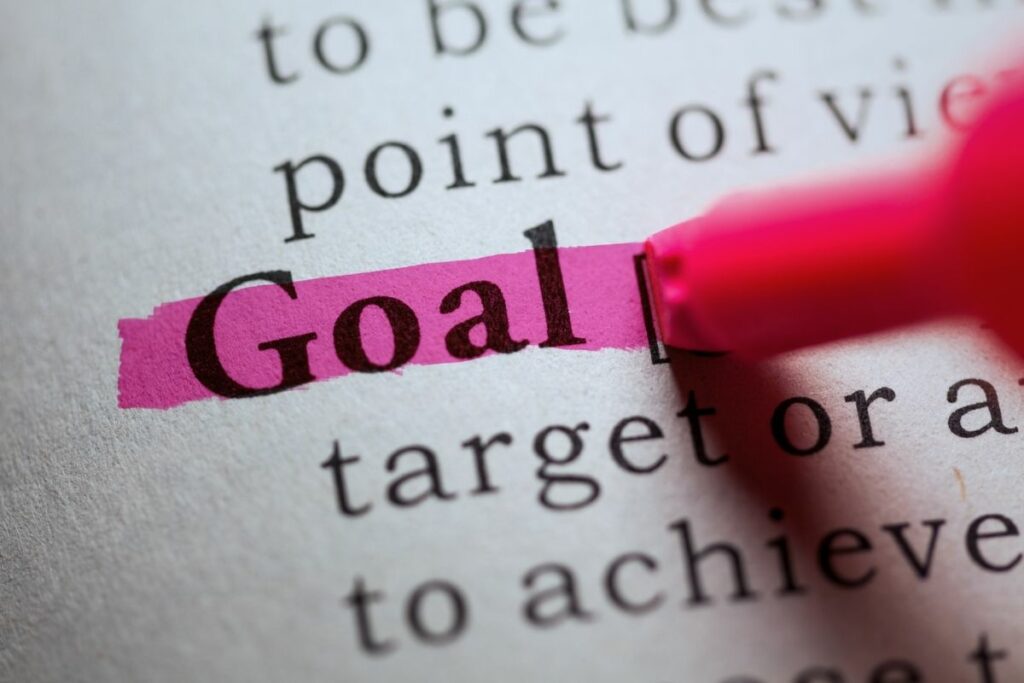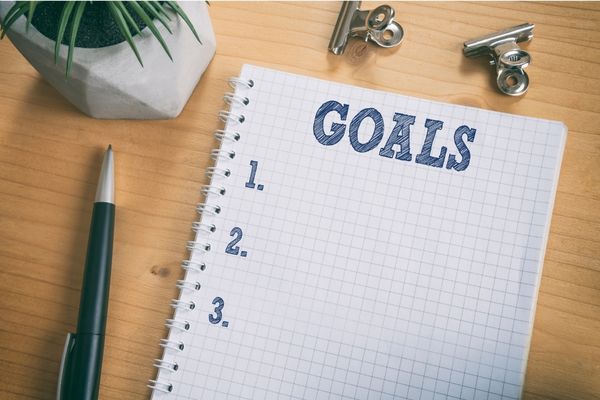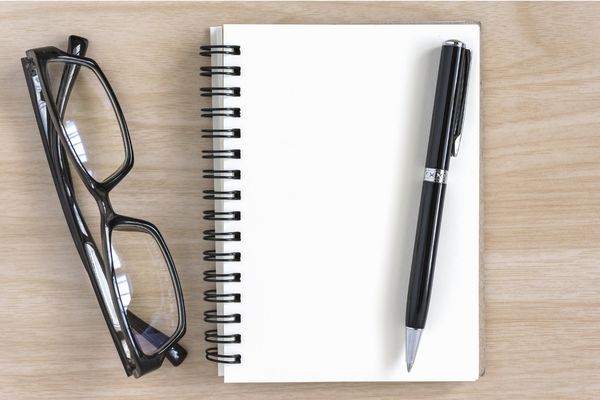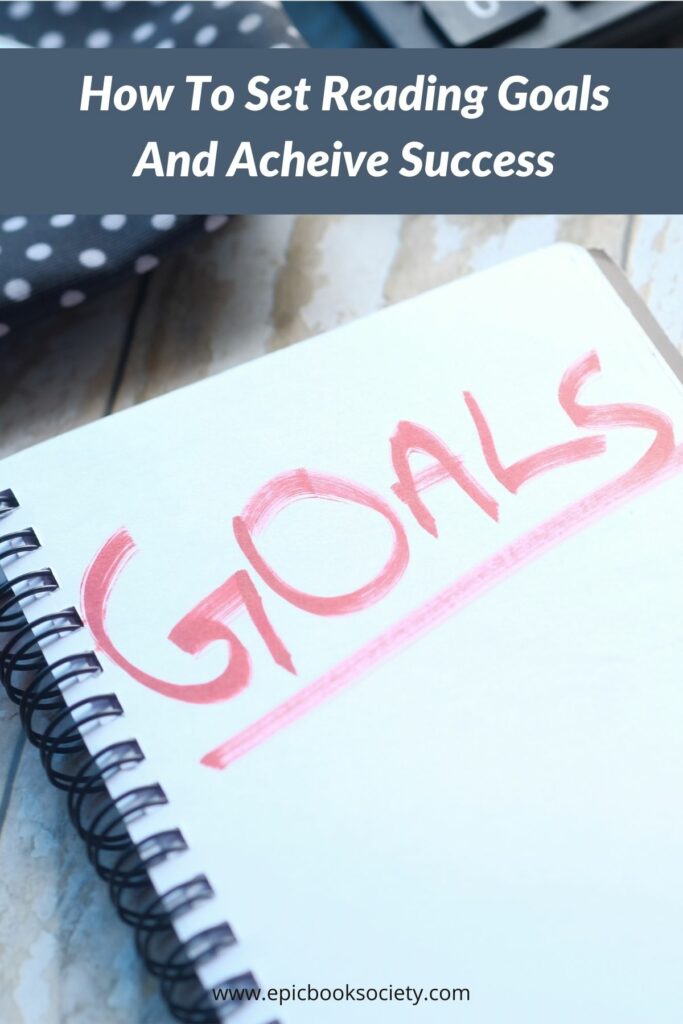Last Updated on December 8, 2023 by Louisa
Reading is one of the most important pastimes we have available to us. Not only does it provide immense enjoyment, but it’s also vital to self-development.
It improves your focus and memory and is an all-around great exercise for that grey matter of yours.
However, as reading is such a simple task, it can be really easy to get sidetracked, perhaps with the TV in front of you, or from all of the people talking in the café you’re in.
To help combat this, reading goals can be a great tool to help you stay focused and help keep reading enjoyable and most importantly, engaging.
In this article, I’ll discuss various factors that you should consider when thinking about setting reading goals, as well as delving a little deeper into why setting goals is important in the first place.
So, without further ado, let’s jump straight in.
Why Should You Set Reading Goals?

Setting reading goals gives you a chance to challenge yourself and force yourself out of your comfort zone.
By constantly striving to read books outside of what you’re familiar with, you can expand your knowledge base and learn new things.
Reading regularly also encourages healthy habits such as good concentration, improving your focus, and taking time for self-care.
Additionally, connecting with other readers through book clubs or online discussion forums can be a great way to connect with like-minded people and ensure you are meeting your own personal reading goals.
If you’re an avid reader, or you want to make reading a habit, then setting reading goals is always a good idea.
How To Set Reading Goals
Firstly, assess your current reading habits
If you’ve recently found yourself busy with life (and let’s face it, we all have at some point), or you just haven’t picked up a book in a while, you should be looking to set yourself a reading goal.
It doesn’t have to be anything fancy, just something simple like 20 pages a week, or something to that effect.
But before you do any of that, you should start by thinking about how much time you spend reading.

This doesn’t necessarily have to mean sitting down with a book, it can include the time you spend reading the news or even reading Wikipedia on your phone for example.
This will open your mind up to the actual time you spend reading any form of writing that you might not even realize you do.
Once you’ve identified this rough estimate, you’ll know how much time you currently read.
This gives you a good starting point to set your reading goal. There’d be no point in setting yourself the goal of reading a book for two hours every day if you know that you do virtually no reading whatsoever.
Ultimately, it needs to be realistic because this is how you’ll stick to it.
The next step in your evaluation phase is to think about the types of books you typically read.
Are they romance novels, or non-fiction books on history or world events for example?
This allows you to identify any patterns you may have that could ultimately negatively affect your reading goal.
If you tend to only read one genre, then this could be why you don’t get to the end of the book, and now find yourself trying to understand why reading goals are important in the first place!
Identifying any potential challenges you may have to your reading goal is the next step.
If you identify them early, before your reading goal has begun, then you’ll be more likely to find a workaround for that particular challenge which will help keep you on track.
Next, determine your reading priorities

The next step is getting the excitement back into reading. You need to pick books that you’re really going to look forward to picking up, and ones that you’re going to find really hard to put down.
This is by far one of the best ways to stay motivated when reading, and once you’re back into the flow, you might not even need to set yourself a reading goal in the first place.
Think long and hard about what genres or topics might interest you the most and that you can envision yourself reading about.
Don’t come up with just one or two examples because that’s how you fall into the trap of only ever reading the same genre.
Come up with at least 10.
They don’t have to be broad either, the more specific, the better. Not only will you grasp a thorough understanding of one niche topic (if it’s for non-fiction), but you’ll keep your options open further down the line.
Have you ever come across any books that you’ve mentally registered as something you’d like to read in the future?
Maybe the person opposite you on the Underground was engrossed in a book you liked the look of, or you saw a poster in the bookshop window.
It always helps when you read something you’re genuinely interested in, so when you pick your next book, make it a good one.
Now it’s time to set realistic reading goals

The list of potential reading goals you can set yourself is quite literally endless. Of course, they will usually always vary depending on your interests and what you like reading.
Popular reading goals can be simple, like reading one book a month for a whole year or reading for 30 minutes before bed every night.
Whilst these examples are for your own pleasure, you might even want to think about setting reading goals that will improve you as a person, through language skills like your vocabulary and grammar, or simply just so you know a topic better.
If you’re learning a language too, reading goals can help massively as they’ll keep you engaged and wanting to learn as much as possible.
One of the best ways to learn a new language is to consistently practice over a long period of time.
Set yourself the goal of reading a simple book each month in the language you are learning, and you may find that you’ll soon need a harder challenge.
If you’re concerned about stress levels, you might be surprised to know that setting reading goals can help there too.
That’s right, reading has been proven to reduce stress and by setting yourself a goal of getting some solid reading time in, perhaps before work on the commute, or before bed, you may find that your stress levels slowly begin to dwindle.
With all of these reading goals, however, it’s really important to break down the big goal into smaller, workable ones as this will help keep you on track.
Unless you’re a super keen reader, it’d be pointless setting yourself the goal of reading a book a week, for example, as it’s just really unlikely you’ll stick to it.
Consistency is the key, and if you’re consistent you stand a great chance of fulfilling your reading goal.
You might even want to make a reading schedule

Setting a reading goal doesn’t necessarily just mean mentally taking note.
It’d be a great idea to make a reading schedule on your phone or in your diary if you have one.
Think about what days you might not be able to get much reading done, perhaps on a weekday when you usually get home late from work and then have soccer practice or something.
If you’re making dinner too, you probably won’t have time to read that day.
That’s ok, to not read on days you’re super busy, but just knowing which days you should be reading on can often be the first, and most important step in sticking to your reading goal.
It’s always a great idea to read when it’s convenient for you. There’s no point forcing it into your day just so you can stick to your schedule.
You’ll lose focus and eventually grow resentment to reading.
You want it to be something you look forward to, and forcing yourself to read every day might not be the best thing to do, especially if you’re not used to reading often.
Take busy days into account and incorporate them into your bigger goal. If you know you’re really busy three or four days of the week and are always out and about during the weekends, it’s probably unreasonable to think you can finish a book in a month.
If you commute on a bus or a train, then this is a great time to read and is when you can make significant progress on your reading goal.
You’ll need time to relax before a busy day at work, and likewise, you can unwind with a chapter or two on the way home all without the distractions that come with being at home.
It’s also really important to be flexible with your goals. If you know that you might not stick to your aim that week, try and find the time to make up for it the week after.
As I’ve mentioned, keeping on track with your goal is the key to success.
If you want to succeed, track your progress

If you set yourself reading goals, you’re more than likely going to want to track your progress.
Not only does this make your life so much easier when it comes to remembering what books you’ve read, what genres, and how long it took you to read them, but it’s also just incredibly rewarding watching your progress as you become more and more proficient in reading.
Going from reading 10 pages a night to an entire book in a day or two can be seriously rewarding and will go a long way in helping you to stay motivated.
Reading goals can last however long you want them to, so if you’ve set yourself a big goal of reading 15 books in a year, 8 months in you might be feeling a little demotivated.
If you know how many you’ve read by that point, it can give you the extra push you need to see your goal out.
If you don’t have a reading tracker or reading journal, you can download the following FREE PDF, print it off, and use it to track your goals.
What Are Some Common Reading Goals?
Now I’ve told you about how to set reading goals, let’s take a look at some common goals you might want to set yourself:
- Read for one hour a week
- Read a non-fiction book a month
- Pick a book from a genre you would not normally choose
- Critically analyze a piece of literature
- Join a book club
- Write a book review online at least once a month
Summary
Setting yourself reading goals can be a really good way of keeping motivated when it comes to reading.
Define a specific target, such as the number of books you want to read, or the amount of reading time you want per day. Remember, it has to be challenging, but definitely achievable.
Make a plan on how you aim to achieve your reading goal, by setting aside a regular time of day solely for reading for example.
Track your progress and then watch as you ace every reading goal you set for yourself and become a master bibliophile!


